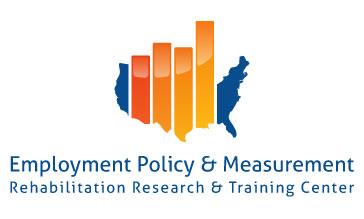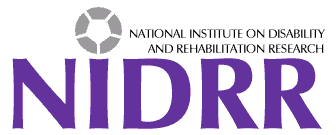
The Rehabilitation Research and Training Center on Employment Policy and Measurement (EPM-RRTC) is (a) investigating the impact of federal and state policies and programs on employment, paying particular attention to the effects of program interactions, (b) examining new ways of measuring employment outcomes, and (c) facilitating the translation of research findings to guide policymaking and program administration.
The persistently low employment rates among people with disabilities in the United States are accompanied by consistently high rates of participation in safety net programs. As funding for employment related services is limited, people with disabilities who wish to access employment services may face either delays in access or scarcity of available options. The lack of coordination between available employment services and safety net programs is an additional cause for concern.
In order to address these issues, policymakers, program administrators, advocates, and people with disabilities need compelling evidence-based information on the effectiveness of past employment promotion initiatives and efficient ways of measuring and monitoring employment outcomes as innovative policy options are tested and implemented.
Project Staff
- Debra Brucker, Research Associate Professor
- Megan Henly, Project Director
- Andrew Houtenville, Center Director, CMDR | Research Director
- Shreya Paul, Project Director II
- Vidya Sundar, Associate Professor
- Karen Volle, Project Director
Project Partners
To fulfill the EPM-RRTC mission, an experienced, interdisciplinary team—with expertise that spans the areas of research, knowledge translation, and policy formation—has been assembled. This team includes:
- American Association of People with Disabilities (AAPD)
- Mathematica Policy Research
- UNH Whittemore School of Business and Economics
- Cornell University
- Rutgers University
- Syracuse University

The Rehabilitation Research and Training Center on Employment Policy and Measurement is a five-year, $4.25 million project funded by the U.S. Department of Education, National Institute for Disability and Rehabilitation Research (NIDRR), under grant H133B100030. The contents do not necessarily represent the policy of the U.S. Department of Education and you should not assume endorsement by the Federal Government.